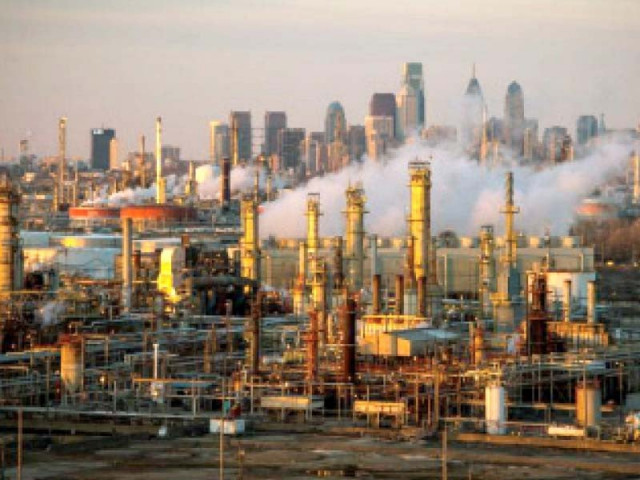Refineries seek increase in bank credit
Insist govt can save $200m per month by raising credit limit for crude oil imports

Pakistan can immediately cut the energy import bill by $200 million a month through the increase in banks’ credit limit for crude oil imports by refineries as it is paying an extra $50 per barrel on the import of refined products.
“The import of crude oil, instead of refined products like petrol and diesel, will save up to $2.5 billion a year in foreign exchange reserves,” said Cnergyico Pk Limited (formerly Byco Petroleum) Vice President A & HR Azfar Saeed Baig in a chat with The Express Tribune.
The foreign exchange reserves have depleted by over $7 billion in the past six months to a critically low level at $9.72 billion that covers just six weeks of imports.
The government has taken various measures to avoid the worsening of the country’s balance of payments crisis.
General Manager Financial Control Muhammad Ali Aslam said the refineries’ capacity to import crude oil had dropped to half in the wake of a spike in crude oil prices to over $120 per barrel in the global market compared to around $70 per barrel a year ago.
In addition to that, the rupee has depreciated by around 26% to Rs197.92 against the US dollar compared to Rs157.54 on June 30, 2021.
The refineries import crude oil through the available bank credit lines in rupees. Banks, however, are not ready to increase the credit ceiling, which has plunged due to the spike in crude oil prices and rupee depreciation.
The shrinking credit limit has badly impacted the refineries’ capacity to import crude oil and produce refined products.
On the other hand, the banks are meeting all financial requirements for the import of refined products by Pakistan State Oil (PSO) as it was importing petrol at an extra cost of $30 per barrel and diesel at $50 per barrel compared to crude oil, Aslam said.
The officials involved in importing refined products, instead of allowing import of crude, “are compromising the country’s foreign exchange reserves”, Baig said.
Other industry sources said that Pakistan Refinery Limited (PRL) had approached the State Bank of Pakistan (SBP), asking it to tell commercial banks to increase the refineries’ credit limit.
The central bank has asked commercial banks to do the needful, however, the banks gave a poor response, they said.
The Oil Companies Advisory Council (OCAC) has also written a letter to the central bank on behalf of its members including the refineries and oil marketing companies (OMCs).
“A petroleum product crisis is in the making in the country amid banks’ poor response,” Baig said.
The Cnergyico Pk official projected that the demand for petroleum products would remain high against general expectations for a drop in the aftermath of a sharp increase in petroleum product prices by Rs60 per litre in recent days.
They said the indecision on the part of high government officials was causing people to pay the price. The officials spend too much time on unnecessary activities like who would import how much quantity of crude oil and refined products and sell them at what prices, while they give no time to making important decisions like revising up the refineries’ credit limit.
“The energy sector is overregulated,” Baig said. “The government should deregulate the pricing mechanism for refined products,” he said, adding that the state-owned PSO was the largest OMC in the country.
No OMC and refinery in the private sector has the capacity to manipulate product pricing in the expected deregulated environment in future. “The companies will compete on quality. The benefit will go to the end-consumers,” he said.
The available data suggests that Cnergyico Pk is the largest refinery in the country. It has installed capacity to refine 156,000 barrels per day. However, it has the lowest bank credit line of Rs43.55 billion among all.
Pakistan Refinery Limited, which has the lowest capacity to process 50,000 barrels of crude oil per day, has the credit line of Rs51.19 billion, according to the data.
Other refineries are having capacities to refine in the range of 53,000-120,000 barrels per day and they are having credit lines in the range of Rs30-144.5 billion each.
Published in The Express Tribune, June 5th, 2022.
Like Business on Facebook, follow @TribuneBiz on Twitter to stay informed and join in the conversation.



















COMMENTS
Comments are moderated and generally will be posted if they are on-topic and not abusive.
For more information, please see our Comments FAQ